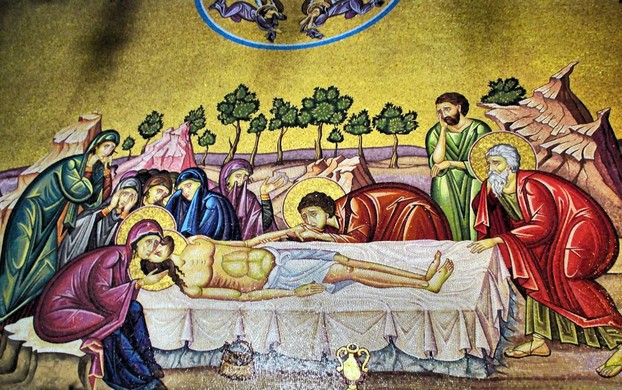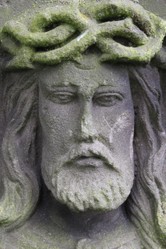Cardinal Kasper, writing in Jesus the Christ, observes that the resurrection kerygma [preaching] is older than the resurrection accounts, by which he means that the church was proclaiming the resurrection before it put into writing the four gospels. The result of writing them down several years after the events and having gone through a period of oral transmission means that there can be some loose ends that don't fit together and no one has been able to construct a coherent pattern that includes all recorded experiences. However, judges who deal with eye witness testimony will say that a thoroughly consistent testimony between several witnesses often suggests collusion, and eye witness testimony can have rough edges.
There is no doubt that members of the early church experienced something. Maurice Casey, not a believer, writing in Jesus of Nazareth, states that the experiences are explicable in terms of the hallucinatory sightings of dead relatives often seen by the bereaved, though he excepts Paul's vision from this explanation. But Casey thereby contradicts himself, as he is accepting that there is one experience that does not fit his explanation, and if one, why not others? Furthermore, the accounts given in the gospels do not fit into the this bereavement hallucination model. If you read Luke 24, the encounter on the road to Emmaus, you see that the disciples do not recognize Jesus until he breaks bread with them. then they say that they should have known him by his inspiring scriptural explanations that had their hearts burning within them. The sighting in a bereavement hallucination is not an unidentified person only recognized later. The failure to initially recognize Jesus also occurred in Mary Magdalen's encounter, so the bereavement hallucination model does not work here either. Of course the objection could be that the gospels are making up the facts. You could say that, but the question the objector must answer is whether he has a source of facts better than the gospels and if so, what is it.
Furthermore, when Jesus met the apostles in the upper room he not only is said to have eaten some fish, but allowed them to touch him. Again, Casey's simplistic explanation does not work in this case. I do not deny that there may have been some hallucinatory experiences, but to say that all, particularly the ones reported here, were hallucinatory, is erroneous.
Nothing can be proved or disproved, but like the empty tomb the resurrection calls for a decision. Did he rise or not? The negative answer fits in with the modern world-view; the positive answer challenges it and opens the door to a confidence in the power of God to defeat evil.









 Pilgrimage. A reviewon 06/15/2025
Pilgrimage. A reviewon 06/15/2025
 Leo the Fourteenthon 05/09/2025
Leo the Fourteenthon 05/09/2025
 The Melsonby Hoardon 03/25/2025
The Melsonby Hoardon 03/25/2025



Comments
Possibly. No one knows.
Thank you for the comment below in correction of my previous observation.
English Wiktionary gives as respective meanings "small" and "ask for, borrow" for the names Paul and Saul.
Might St. Paul have chosen that name because of feeling small in regard to God and Jesus Christ?
We have never associated Emmaus with Paul. As Paul was taken to Damascus it is likely that Damascus was not far away, so he was well past Emmaus,
Thank you for your comment below in answer to my previous observation and question.
The Emmaus road figures as St. Paul's conversion site, correct? In that case, that significant event happens on the latter's way to Emmaus.
Is it possible that the Emmaus road numbers among religious- and spiritual-friendly, thin-veiled liminal places?
The gospel does not specify the direction in which Jesus was travelling.
The Emmaus (from Hebrew חמת, "hot spring") road meeting intrigues me.
Was Jesus Christ coming from Emmaus and His witnesses going to or vice versa?
An interesting metaphor that I had not met before.
Frank, I thought I would share something a theologian once used for an analogy for the Redemptive Act. The late Father Miller used a circle, and Jesus reaching up on the cross as the bottom of the circle. The Father's acceptance the Resurrection, he assigned the Father reaching down to complete the circle. Simple, but quite effective.
I could write lots on reincarnation, as I have studied its place in Christian thought. Resurrection is similar to reincarnation in that re-embodiment occurs, but reincarnation differs from it in that persons are re-conceived in a new womb, whereas Jesus' resurrection was a continuation of his embodiment in a transmuted form. That being said, there was an early Christian reincarnation tradition found in Clement of Alexandria,Origen, Synesius and some other thinkers associated with Egypt. I have searched to find any reference to it in the traditions of the Celtic church, which was associated with Egypt, but have found none so far.
I don't think that the failure of recognition is support for reincarnation, and consider that it is at the moment hard to explain. It may be that recognition occurs in a social framework, and so Mary and Cleophas may have not expected to see Jesus so merely thought that the person looked like him.
Cleophas may have been Jesus' uncle, as Joseph's brother Cleopas [variant spelling] is mentioned in Eusebius' history of the church written in the fourth century. If that is so, then the other disciple with him on the road to Emmaus may have been his son, Simeon, later to succeed James the brother of the Lord as bishop of Jerusalem in the 60s
frankbeswick, There's an excellent source for the resurrection as a real event in The Bible.
In another direction, What do you think of the interpretation of Jesus not being recognized initially by Mary Magdalene and on the Emmaus road as a validation of reincarnation?